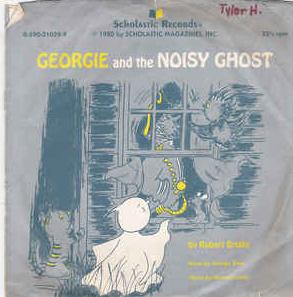Natural Ghosts April 9, 2017
Author: Beach Combing | in : Contemporary, Modern , trackbackThese words came from an article in All the Year Round 1869 trying to explain ghosts as problems of sensation. It is unusually well written, and goes into some areas of perception that modern studies don’t deal with: we tend to be obsessed by sight.
Next to sight, hearing is the sense most frequently imposed on, and no sound is so commonly imagined as the call to a familiar companion. Dr. Johnson fancied he heard his mother call ‘Sam,’ when she was hundred miles away, and was much disappointed when nothing ensued. That call by a familiar voice was a frequent experience of the present writer. It was commonly a home voice, and a loud, clear, and abrupt monosyllabic call. But he has heard the voice of a brother miles away, speaking as from behind his shoulder in a college library, and turned to answer in a voice itself so insensibly subdued to harmony with the impression, as considerably to surprise a fellow student who was standing near. But the delusions of hearing were, in this case, not confined to voices; the sound of opening doors within the bedroom at night, when there was no door opened, and other such tricks on the ear, were also not uncommon, but these (though not the sudden voices, which seemed to be connected with some momentary leap of the blood, as in the sensation that one has sometimes when going to sleep, of falling suddenly with great jolt), were always to be explained by a traceable relation to a thought within the mind.
Having had a couple of sound illusions over the years Beach is intrigued by this description. He agrees absolutely that sounds can be easily heard in bed: and has frequently thought that door bell rang when it didn’t, either in the gloaming of morning or night. The comparison with the ‘great jolt’ when the body is trying to sleep is exact. The voices being connected to ‘a thought within the mind’ sounds credible, but does not correspond to this blogger’s experience. The author continues:
Next to hearing, touch is said to be the sense most frequently imposed on; when people have fancied themselves beaten by invisible or visible fiends, and felt considerable pain from it. The present writer can remember in his own ghostly experience but one delusion of the sense of touch. It was associated with delusion of hearing, and repeated nightly for week or ten days.
Here there is much less to go on. However, one frequent experience described in haunting, is a caressing on the cheek or the body. This must be some sort of neurological short-circuit? There is, of course, too, the sheet being pulled away from the body… As to beating this seems to be culturally determined. There are lots of medieval accounts but no modern ones? Drbeachcombing At yahoo DOT com
Our author ends with smell and taste on a down-note.
Sometimes the sense of smell is deceived, as when the spectral sight of a demon is joined to a spectral smell of brimstone. Considering how often people saying that they ‘fancy they smell’ something, one might think play upon this sense to be more common than it is. Least liable to delusion is said to be the sense of taste. Thus, the lunatic mentioned by Sir Walter Scott, fancied his porridge dinner to consist of every delicacy, but complained that everything he ate tasted of porridge.



